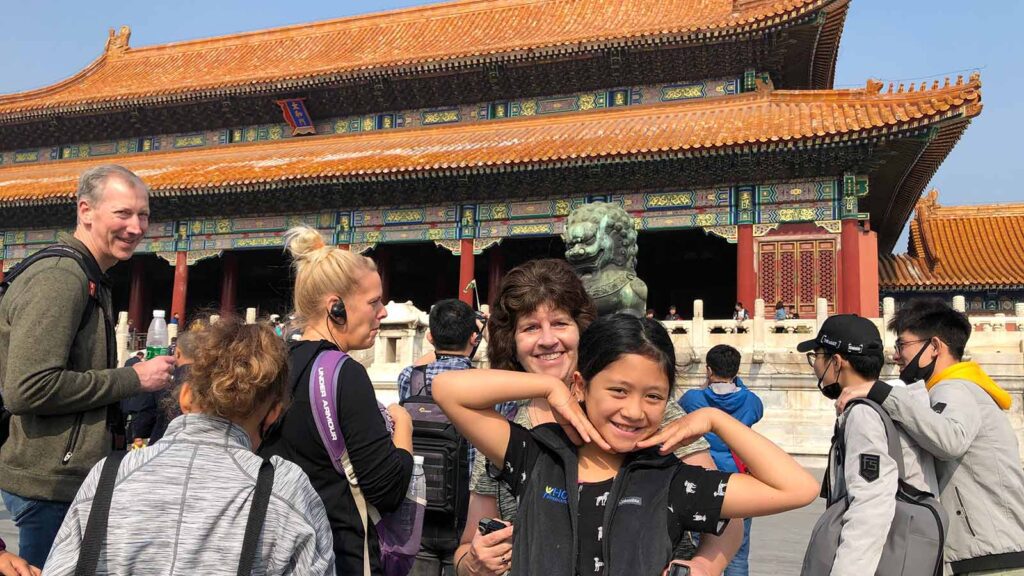20 New Ideas For Choosing China Tour Sites
20 New Ideas For Choosing China Tour Sites
Blog Article
Top 10 Tips For Regional Specialties When Shopping In China
1. Do your research before you goTip Find out the most famous things each region is known for. Suzhou, for example, is known for its silk, Jingdezhen is famous for its porcelain, and Tibet, because of its thangkas.
Pro Tip: Concentrate your shopping efforts to avoid the time wasting.
Con: It requires prior preparation and knowledge of regional highlights.
2. Locally purchase to ensure authenticity
Purchase directly from the source that you are from to ensure quality and authenticity.
Pro: Reduces the risks of copyright goods, and also helps local artisans.
Cons: Getting away from tourist areas or rural areas is possible.
3. Take a look at the workshops or artists.
Shop in small boutiques or hubs of artisans instead of general stores.
Pro: Provides better understanding of craft and guarantees that you're buying directly from the creators.
Pro: Products made by hand can be expensive and difficult to negotiate.
4. Understanding the significance of culture
Discover the history of items such as cloisonne or jade carvings.
Pro: Makes you appreciate the product and give them a deeper meaning.
Con: It might take a while to fully understand cultural nuances.
5. Be sure to check the quality by taking care.
You can test the quality of products by looking at them such as tea, ceramics embroidery, or tea.
Pro: Avoids disappointment by ensuring you get what you spend for.
Cons: You need some direction or experience to understand what high-quality merchandise is.
6. Beware of mass-produced goods
Check out unique, handmade products instead of mass-produced replicas.
Pro: It will ensure that you take home a truly special and valuable keepsake.
Con: Genuine craftsmanship tends to cost more and are harder-to-find.
7. Compare Prices
Tips: Visit different stores or stalls in order to compare prices for the same item of interest.
Pro: Helps you identify reasonable price ranges and also helps you avoid being overcharged.
Cons: It can be difficult to find big markets.
8. Buy tea from trusted sellers
Tip To visit regions such as Hangzhou or Fujian Visit reliable tea houses to purchase Longjing (Dragon Well) or Tieguanyin teas.
Pro: Ensures top quality and authentic.
Con: It can be difficult for novices to judge the quality of tea.
9. Find out more about Local Customs
Certain sellers require you to bargain or consider it a part of the process.
Pro: It adds a fun cultural aspect to shopping.
Con: Misunderstanding customs may create awkward interactions.
10. Pack Wisely
Prepare for the transport of delicate and heavy objects like silk, ceramics or other regional specialties.
Pro: It protects the items and ensures that they arrive in good condition.
Cons: Additional logistical issues and potential shipping cost.
Advantages of shopping for local Specialties
Unique Souvenirs. Specialties from the region offer unique products that are not available anywhere else.
Cultural Immersion. Shopping for local products will help you connect to the rich history of the region and its craftsmanship.
Support for Artisans Direct purchases from artisans benefit local economies.
The disadvantages of shopping locally for specialty foods
Authenticity Concerns : The risk of purchasing copyright or lower-quality versions.
Moving fragile, heavy or bulky items may prove difficult.
Higher prices: Handcrafted products particularly are often very costly.
You can make the most out of your shopping experience in China by following these easy tips. See the top rated start exploring this iconic destination for website tips including entertainment in beijing, chinese wood carving originated in neolithic period, top three buddhist temples in chengdu, snow beer the best selling beer in the world, eating in urumqi, shopping in tibet, south luogu laneone of the oldest neighborhoods in beijing, lijiang tour maps, chinese festival cuisine, chinese festival cuisine and more.
Top 10 Tips For Rituals To Follow When Visiting Famous Temples In China
1. Tip: Each temple has its own guidelines and rules. You should be aware of these rules, particularly when entering sacred areas.
Pro: Respects local tradition and sacred temple space.
Cons: Trying to learn the rules of temples that are complex can be difficult to master.
2. Be respectful and quiet
Tip: Maintain a respectful manner by remaining quiet during the rituals or inside the temple. Be careful not to talk or laugh too loudly.
Pro: Brings peace to worshipers and displays reverence.
Con: Silence could make you be uncomfortable if you don't know the local customs or the environment.
3. Dress in a modest manner
Don't wear revealing clothes and dress in skirts or long pants. Some temples provide scarfs, shawls, or other items to cover your arms.
Pro: Represents respect for the sacred space as well as those who pray there.
Con: It may require extra preparation or attire when visiting on a day that is hot.
4. Offers Ritual
Follow the locals' instructions when you wish to make an offering, such as incense and fruits.
Pro: Shows respect for the sacred practices and will assist you in fitting into the traditions.
Con: If you're uncertain about the ritual It may be difficult to take part.
5. Do not interrupt your meditation or prayer.
Be careful not to interrupt worshippers when they are meditating or praying. Don't snap pictures or engage in conversations while others practice spirituality.
Pro: Shows respect for culture, and creates an environment of calm reverence.
Con: You may be enticed to take photos of moments to keep in your memory However, doing this could feel intrusive.
6. Lighting of Incense
Tip: Chinese temples have a ceremony that involves lighting incense. Light incense to pay respect to the Gods If you're permitted. Incense is held and then bow gently while offering it to the gods.
Pro: Displays that you are active in temple worship and honour the tradition.
Con: Incense might not be common to all travelers.
7. Avoid touching sacred statues or objects
Tip: Avoid touching sacred objects or temple statues unless asked specifically to.
Pros: Maintains the sacredness of temples and reverence within the temple space.
Con: You may get confused if you don't know the temple boundaries.
8. Be Aware of the Hierarchy in Temples
Tips: In some temples, there are different levels of sanctity. Be cautious when you enter the temple. Don't walk the vicinity of altars or statues that are sacred.
Pro Tip: Make sure you keep the area clean and tidy. Also, show that you respect the temple practices.
Con: The hierarchy may not always be clear making it more difficult to comprehend what is acceptable.
9. Keep Offerings Humble
Tips: If you decide to offer gifts (flowers fruit, flowers or even money) be sure to keep them in a modest manner and in line with the local traditions. Expensive gifts or extravagant ones are not always viewed with respect.
Pro: Shows humility and aligns with local customs.
Con: It can be difficult to identify which type of product is appropriate without assistance from a local source.
10. You can attend temple events when you are invited
Tip. Certain temples may hold special events like prayer or ceremonies, or even days. Please be respectful and be a part of the celebration if you are invited to join in.
Pro: It is connected to local culture, and lets you experience the temple in a deeper way.
Con: Participating in unfamiliar rituals may feel awkward or uncomfortable if you don't know the correct procedure.
Benefits of observing Ritual Practices in Temples
Cultural Immersion: By participating in a ritual, you'll learn more about the culture and traditions of China.
Respectful interactions: Interacting with temple personnel and locals with respect will help to build positive relations.
Participating spiritually or in cultural practices is a rewarding and enriching experience.
An unforgettable experience A participation in temple ceremonies leaves a lasting impression on your visit.
Pros and cons of performing rituals in temples
Unfamiliarity. First-time visitors may find rituals confusing, resulting in confusion or errors.
Cultural Mistakes: When made incorrectly, this can result in a misunderstanding or offence.
Because of language barriers, you might find it difficult to comprehend instructions or rituals.
Physical Discomfort: Certain practices, like sitting or bowing for lengthy periods of time, can be physically demanding.
Follow these tips to ensure a memorable fun, respectful, and memorable visit to China’s most famous temples. Take part in the spiritual practices of the locals, without getting offended. Follow the most popular see what makes this landmark unique for blog examples including guilin travel tips, the origin and history of the mysterious chinese dragon, chaka salt lake, eating in guiyang, eating in changchun, xishuangbanna, eating in lanzhou, wuxi a shining pearl of taihu lake, weaponry of iron age iron cannon iron armour and warships, luoyang peony and wangcheng park and more.